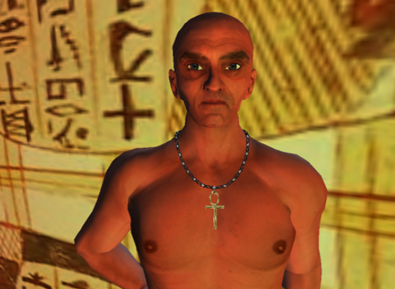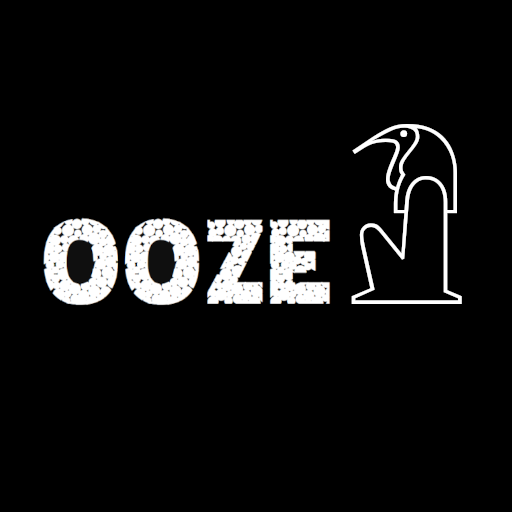Audio version of this page
Who Am I?
I am an historian and theologian whose work explores religion and magic, specifically ancient Egyptian religion and religion in cyberspace. While I am intrigued and curious about all kinds of religion, my main expertise is in what has come to be known as the Western Esoteric Tradition. I contend that this tradition has threads that go at least as far back as ancient Egypt, and moreover that these threads have come through to us today via ancient Greek and Roman thought, renaissance Hermeticism and the occult revival in the nineteenth and twentieth centuries.

I am also a virtual world developer who likes to create immersive, fun, educational spaces in Second Life. For example see https://ooze.net/the-magic-of-designing-immersive-educational-experiences-for-fun-and-learning/
I’m so into this stuff that I spent a billion years at uni studying it. I looked into things like, if you are a practitioner in the Hermetic tradition in the Southern Hemisphere which way do you do your circle rituals? Who were some of the main players in bringing the Hermetic current to the Southern hemisphere? And can you do magic in cyberspace? Ultimately I wrote a PhD about the latter topic. But also I’m out there talking to trees and recognising the personhood of non human beings.
Why Am I doing this?
This blog is part of my continuing effort to self host all my academic work rather than have it on Academia.edu, which is now becoming enshittified. Despite its .edu domain Academia.edu is not actually run by an educational institution. It is a private company which got its domain when .edu domains were not strictly restricted to educational institutions, and then managed to get it grandfathered once the rules were tightened1.
I had entered study with the goal of teaching at university, however by the time I graduated with my PhD I had become aware that universities are neo liberal hellscapes. Endless bureaucratic nightmares are the main occupation of present day academics, who spend most of their time applying for funding (which they almost never get) instead of doing actual research or, god forbid, teaching.
When they do get grants to do research most academics give their work for nothing to commercial publishers, people who are in the business of making information hard to get. These publishers then get other academics to peer review this work, without paying them, and then they sell the papers and books back to the universities. The end result is universities spending huge amounts of money to buy back the work of academics.
Not wishing to be part of this scam, nor to be a part of its end game, where all the good information is locked behind paywalls, but paradoxically a lot of the information behind paywalls is shit, I published all my work as open access. It seems only fair seeing my PhD was funded by the Australian Government.
Things are most definitely not as they should be in universityland, and academia did not work out well for me. But it is my own fault really. I made the mistake of believing the oft repeated assertion that cross disciplinary studies are welcome and supported by universities. I mean, they say it all the time so I perhaps could be forgiven for believing them. But they are in fact not at all well equipped to support such studies. My thesis suffered from this lack.
This is just one example (I’ve got more, so many more) of why I abandoned my dreams of a university career and devoted myself instead to improving my farm and doing research for fun, but not profit. Now that I have had some time to decompress from the madness of nearly a decade at university I want to not only have my work available freely but to work collaboratively with others to improve it. Hence this blog.
What is this collaborative editing project?
There are two sections to this site, one contains various bits of my research along with rants and musings, the other contains my PhD thesis. The thesis bit is an experiment in open editing. I’m not putting it up here as a fixed work. Rather I’d like to see how much better it can be made with the input of more people. For stupid reasons universities don’t let people cooperate on PhD projects. It has to be 100% one’s own work. This is not the best way to produce a knowledge resource. Combine this with the aforementioned lack of adequate supervision or marking and I am sure this work can be made a lot better with wider input. So I invite you all to participate in making this resource better.
So what is it about? Basically it is an autoethnographic account of my search for the sacred in cyberspace. The research was conducted in the virtual world Second Life, and in particular in two role play communities set in Ancient Egypt. In these communities we built replicas of ancient Egyptian temples and cities and did what (we thought) the ancient Egyptians would do.
It starts out with a history of video games and virtual worlds followed by explanations of the technical aspects of how Second Life works. Then it moves on to looking at how communities form in online spaces, what the particular features of those kinds of communities are, with in depth looks at identity creation and the psychology of being an avatar person.

Then I get into the really interesting bits. I recount my experiences with ritual in cyberspace, describing sacred virtual space, and its relationship to sacred meatspace from a Pagan perspective. I compare two initiation rituals, and describe how one produced the perception of sacred space, in both meatspace and the virtual world, while the other remained only a role play.
This is the story of how I became one with my avatar, despite my best efforts not to do so. I hope you will enjoy reading it and, if you can, helping me to make it even better.
This work is released under the Creative Commons Attribution-ShareAlike 4.0 International License. To view a copy of this license, visit http://creativecommons.org/licenses/by-sa/4.0/.
You are free to:
Share — copy and redistribute the material in any medium or format
Adapt — remix, transform, and build upon the material for any purpose, even commercially.
The licensor cannot revoke these freedoms as long as you follow the license terms.
Under the following terms:
Attribution — You must give appropriate credit, provide a link to the license, and indicate if changes were made. You may do so in any reasonable manner, but not in any way that suggests the licensor endorses you or your use.
ShareAlike — If you remix, transform, or build upon the material, you must distribute your contributions under the same license as the original.
No additional restrictions — You may not apply legal terms or technological measures that legally restrict others from doing anything the license permits.
Privacy
This site uses Matomo to analyze site traffic. We use Matomo because of their focus on privacy. The data collected is stored locally and never sent to any third parties at all.
You may choose to prevent this website from aggregating and analyzing the actions you take here. Doing so will protect your privacy, but will also prevent the owner from learning from your actions and creating a better experience for you and other users.
